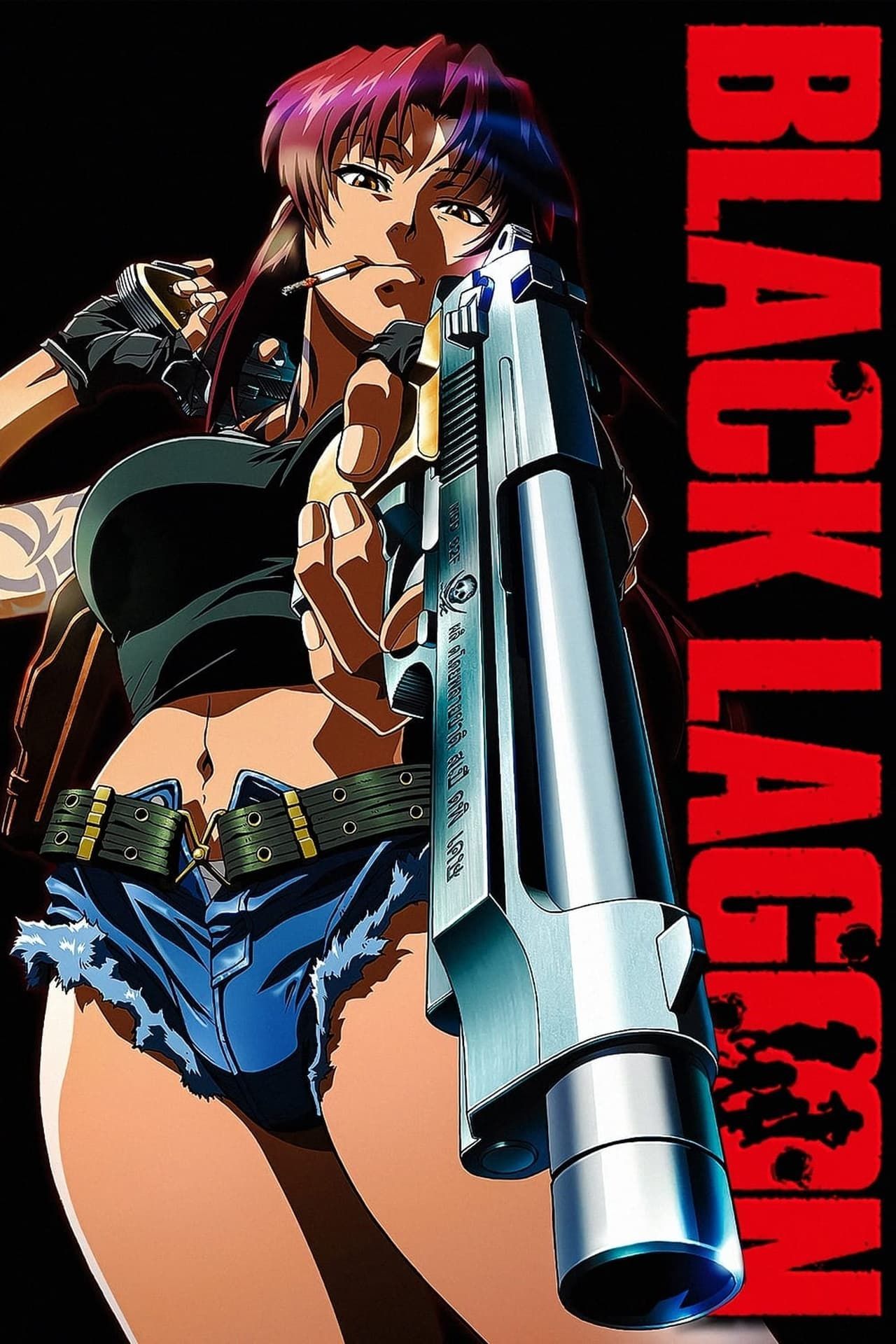Anime often stretches beyond the confines of simplistic narratives like leveling up or high school romances, revealing layers of complexity and depth. A prime example of this is Black Lagoon, an anime that immerses viewers in a gritty world filled with blood, bullets, and moral ambiguity that forces you to reconsider the motivations of every character. If Quentin Tarantino were to explore the universe of Japanese animation, this series would undoubtedly be a testament to his artistic vision.
Imagine an anime that embodies the essence of Tarantino’s storytelling—sharp, impactful dialogue, chaotic characters, and stylized depictions of violence. Set against the backdrop of the fictional city of Roanapur, a ruthless hub for criminals, mercenaries, and warlords in Southeast Asia, Black Lagoon challenges viewers to reconsider the notion of “good guys.” Instead of straightforward heroes, it prompts you to ponder the existence of morality in a world rife with corruption. This acclaimed Madhouse production thrusts you into a universe where negotiations happen at gunpoint, loyalty is quantified in blood, and the individuals wielding weapons are just as fractured as the society enveloping them.
Dive into the Blood-Soaked Universe of ‘Black Lagoon’ Featuring Unapologetic Mercenary Pirates
If Quentin Tarantino ever considered swapping his cinematic lens for a sketchpad to venture into the anime realm, Black Lagoon would likely be the manifestation of his creativity. This series is far from your conventional anime. Created by Rei Hiroe, Black Lagoon unapologetically plunges viewers into a dark, blood-drenched world. The three-season crime drama kicks off with a kidnapping followed by betrayal and a reluctant transformation, setting a grim tone that only intensifies as the storyline unfolds.
Set in the morally bankrupt port town of Roanapur, the narrative revolves around Rokuro Okajima (voiced by Daisuke Namikawa), a seemingly ordinary Japanese salaryman taken hostage by the Lagoon Company—a band of mercenary pirates engaged in smuggling illegal goods for various criminal enterprises. Abandoned by his own company, which prioritizes its reputation over his safety, Rokuro, now nicknamed “Rock,” makes the life-altering choice to join his captors. He abandons the mundane existence of spreadsheets and fluorescent lights to embrace a life of lawlessness and crime.
The Lagoon Company itself is a chaotic ensemble reminiscent of “an earthbound Cowboy Bebop.” Dutch (Tsutomu Isobe), the no-nonsense leader, ensures operations run smoothly amidst the turmoil. Benny (Hiroaki Hirata), the laid-back Floridian hacker, provides a stark contrast to the surrounding chaos. Then there’s Revy (Megumi Toyoguchi), whose dual-wielding pistols and fiery temperament fuel the narrative. If Tarantino were to craft a female protagonist for an anime, Revy would be the embodiment of that character—tough, skilled, and complex. Beneath her hardened exterior lies a troubled past, but the audience receives no sentimental flashbacks, only her fierce attitude and a readiness to confront challenges head-on.
Moreover, Roanapur itself serves as a significant character within the narrative. This lawless sanctuary is a melting pot where mafias, warlords, mercenaries, and disillusioned idealists coexist in an unpredictable ecosystem. Every alleyway brims with potential conflict, and trust proves to be more dangerous than any firearm. Roanapur evokes the atmosphere of a Tarantino fever dream, from its seedy bars to vibrant neon signs and clandestine deals steeped in gunpowder. Each conversation harbors the potential for either profound monologues or violent confrontations, establishing it as one of the most riveting action anime, rivaling the intensity of <em>The Godfather</em>.
Discover How ‘Black Lagoon’ Mirrors Tarantino’s Passion for Flawed Characters
The allure of Black Lagoon lies in its ability to balance explosive action sequences with moments of genuine introspection. The series is filled with shootouts, high-speed chases, and dramatic standoffs, yet it also allocates time for characters to reflect on their choices—even if this reflection occurs during a cigarette-fueled discussion while perched on a dock following a botched job. The anime does not merely revel in violence; it challenges viewers to contemplate the consequences of such actions. The characters are not invincible heroes; they are deeply flawed individuals navigating a society that has long forsaken conventional morals.
This inherent tension—between chaos and reflection—illuminates the Tarantino influence throughout the series. Black Lagoon embraces absurdity, showcasing moments like a Catholic nun wielding a shotgun and a mafia maid functioning as a one-woman army. While these scenarios may seem ludicrous on paper, they resonate within the context of the narrative! The anime wholeheartedly embraces the madness of its premise, reminiscent of how Pulp Fiction and Kill Bill juxtapose graphic violence with quirky humor.
From encounters with neo-Nazis to emotionally charged backstories involving child soldiers and war crimes, Black Lagoon boldly delves into the complexities of its characters. Rock’s journey, in particular, is one of subtle yet profound transformation. He doesn’t morph into a cold-hearted killer, but he does shed his naivety. His initial optimism is gradually chipped away with each episode until he evolves into a man who comprehends the brutal realities of his lifestyle, even if he does not always endorse them. This nuanced portrayal of survival encapsulates the essence of the anime.
So, what makes Black Lagoon feel like a quintessential Quentin Tarantino creation? Much like the acclaimed director’s films, this anime is stylish yet grounded, violent without gratuitousness, and deeply invested in presenting flawed characters. The series engages with Western cinematic influences, refracting them through a distinctive anime lens to produce something entirely original. Whether you identify as a “weeb” or a fan of gritty crime narratives, Black Lagoon offers an unforgettable experience. Just be prepared; you may emerge from it transformed, much like Rock, questioning not only the world around you but perhaps your own beliefs and perspectives as well.
Black Lagoon
- Release Date
-
2006 – 2006
- Directors
-
Sunao Katabuchi
- Writers
-
Sunao Katabuchi
- Franchise(s)
-
Black Lagoon







